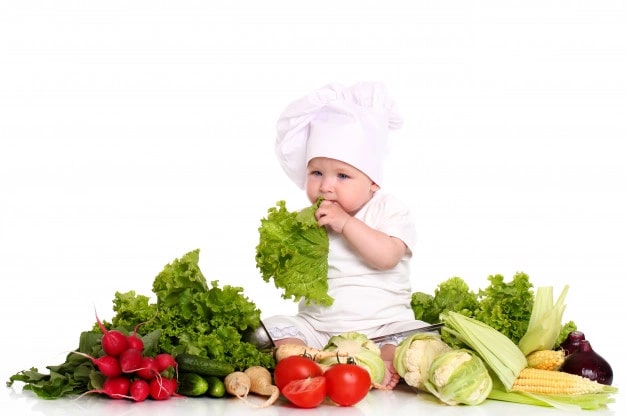Introducing your baby to food is exciting and rewarding – but it can be difficult to know precisely how and when to begin.
Your baby should possibly be four months of age anyway – before this, his immature digestive system will find it difficult to cope with solid meals. Most medical professionals, however, will advise waiting until your baby are at least six months of age, to reduce the chance of food allergies.
Your baby ‘s age seriously isn’t the only consideration and there are other factors to take into account when determining whether or not it’s high time for baby ‘s first foods.
Look for signs of readiness in your baby – does he or she watch you with interest whenever you eat, following the progress of one’s food from plate in order to mouth? This increased interest throughout solid food can indicate that he’s ready to try it for him or her self.
Does your baby seem to be dissatisfied after his typical milk feeds, or is he waking through the night after previously sleeping by way of? Although these may be signs of the increase in his urge for food, they can also become triggered by discomfort coming from teething. It is important to try to establish whether or not teething could be the cause, to avoid introducing food before your baby definitely needs them.
Your baby should have got good head control and then sit well, as this makes eating easier. Younger babies may not manage to sit unsupported, however, so it is crucial to provide the appropriate support if this is actually the case.
The decision to introduce food to your baby must ultimately be produced by you and your kid’s doctor. You may feel pressured by others – particularly the older generation – to offer solid foods to your baby sooner than medical advice recommends. It is important to remember that quite a lot of research has been carried out to be able to provide this advice along with such information simply wasn’t available before.
So what is the top first food for baby?
baby rice, an easily digestible, single grain cereal, is the ideal food first. It can be blended with warmed breastmilk or solution, so its taste is going to be familiar to your baby. Initially, you can mix it with a fairly runny consistency that your particular baby will find easy to manage, thickening the texture a little bit with each subsequent give food to.
About a tablespoon of baby rice may be the perfect amount first of all. Try giving this primary solid feed around lunch break, but take the border off your baby ‘s appetite by providing him some of his usual milk feed prior to a baby rice. If he is also hungry, he will be disappointed and distressed.
He will respond properly to supportive gestures and also smiles, so stay relaxed , nor worry if he pushes the meals back out of their mouth! Most babies do this instinctively initially and this “tongue-thrust” reflex will probably subside as he becomes familiar with the new and unusual textures he’s experiencing.
If he does certainly not seem interested, simply take the foods away and try again the very next day, or a few times later. You should not seek to force him to consume, as this is traumatic for him and may only make things much harder. After all, there is no rush – during this period, breastmilk or formula is meeting all his nutritional needs.
- Baby Nutrition – Everything You Need To Know - April 20, 2012
- Knowing the Bookkeeping Basics - April 20, 2012

